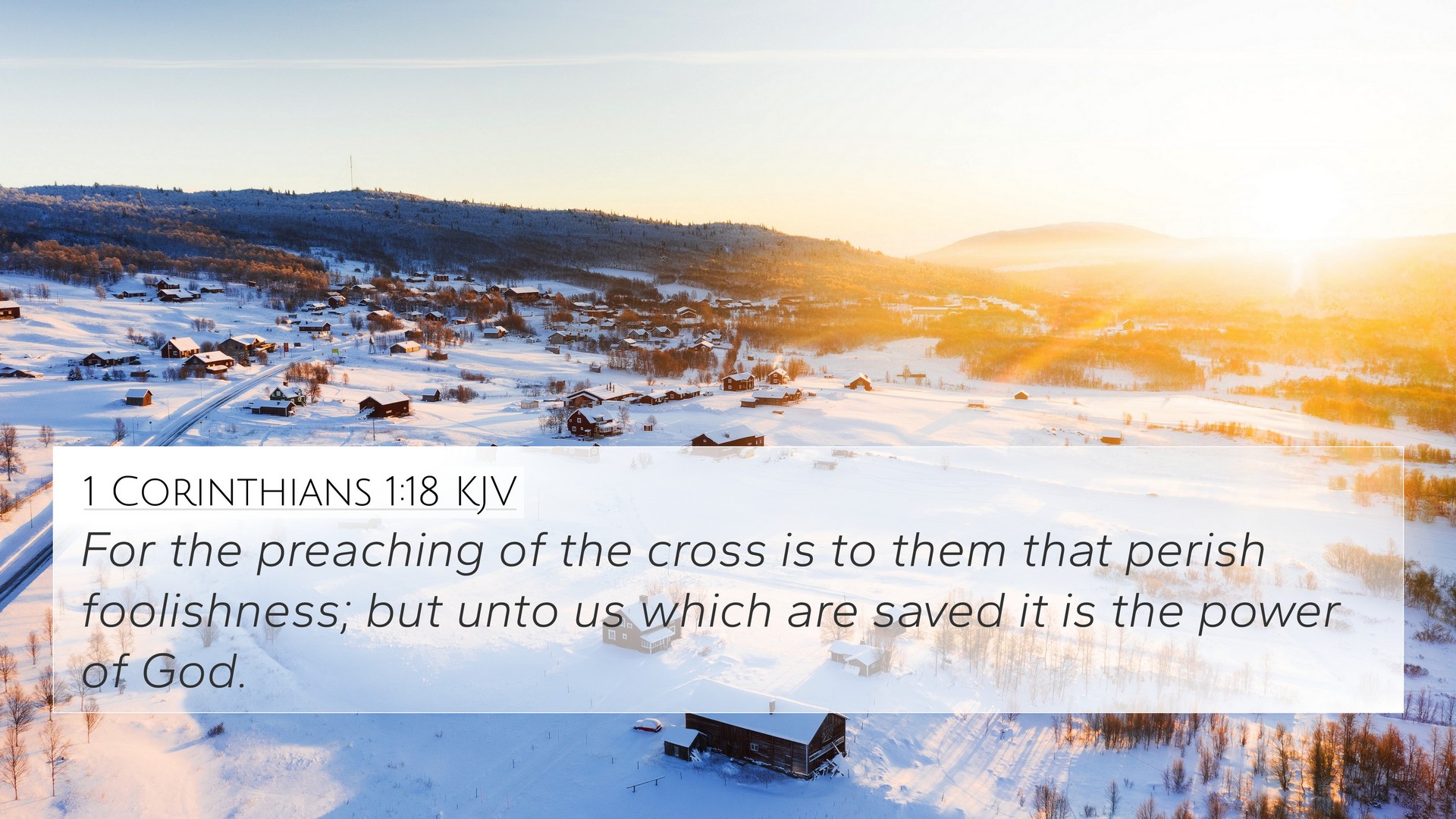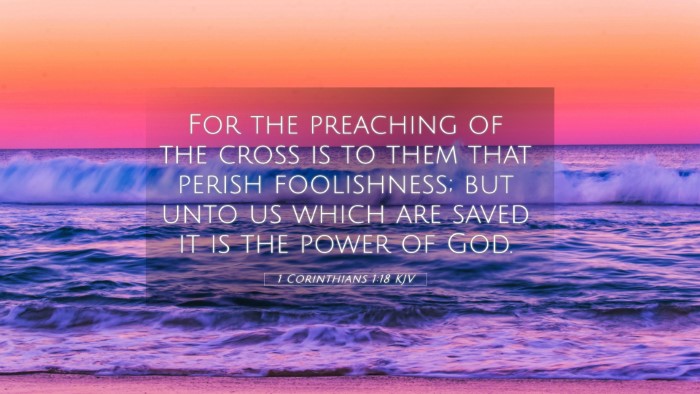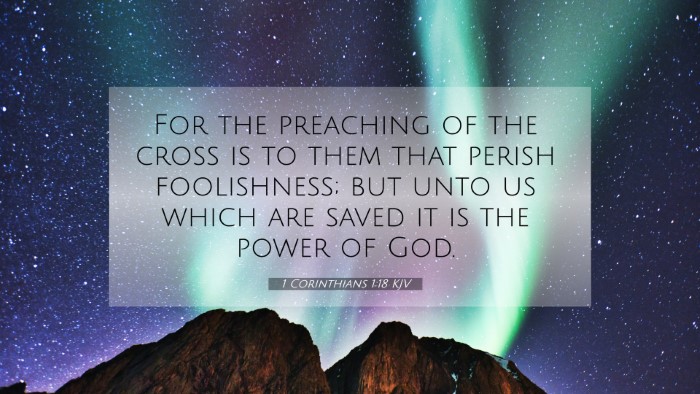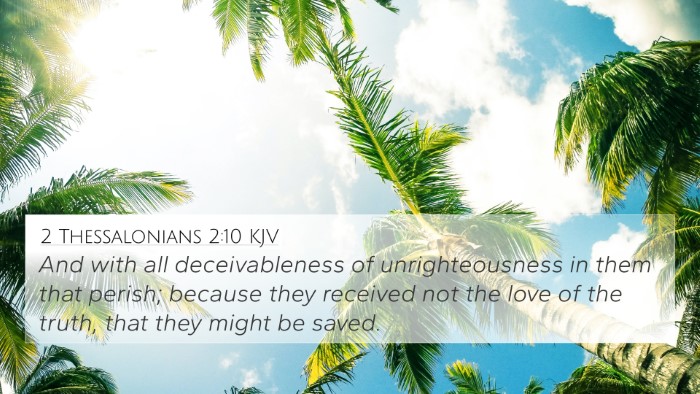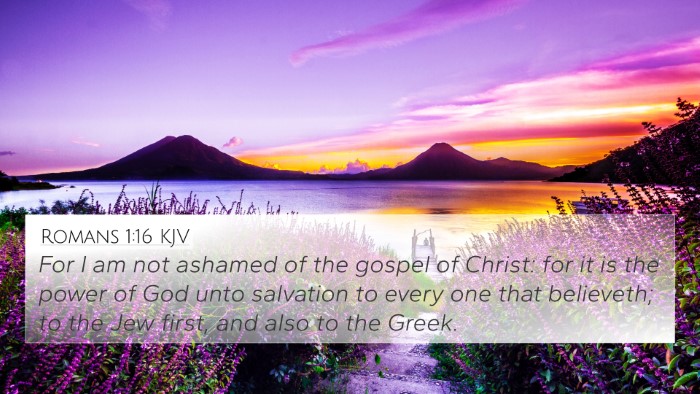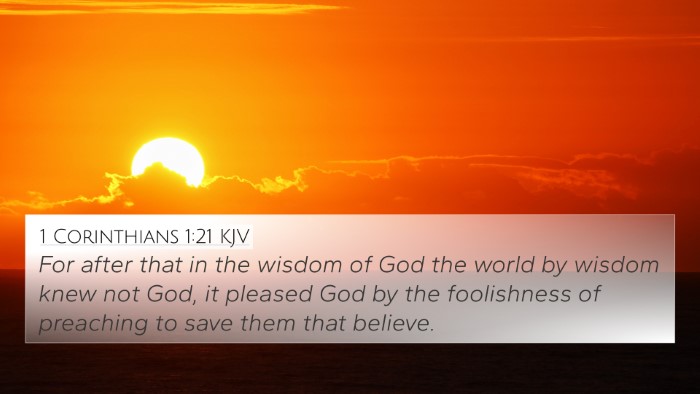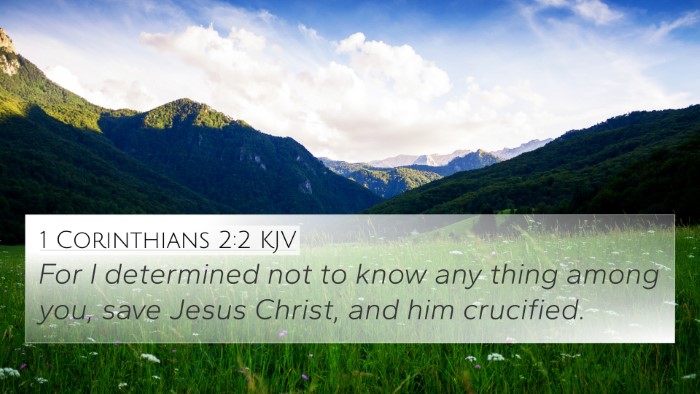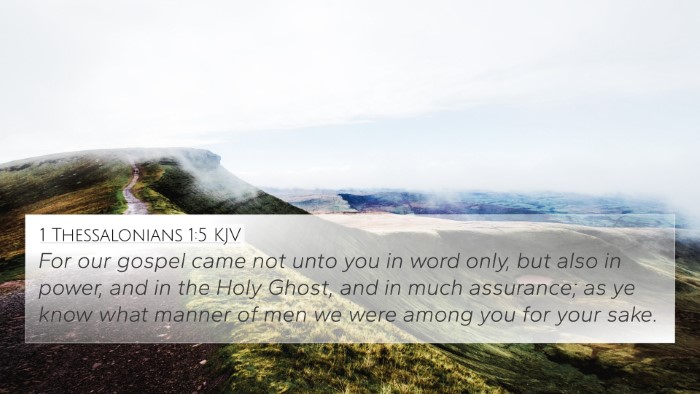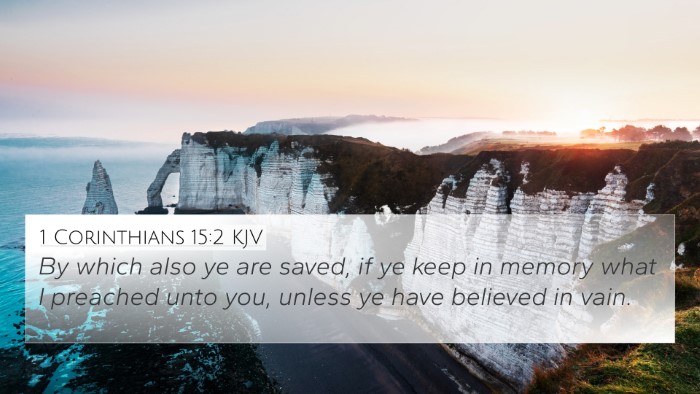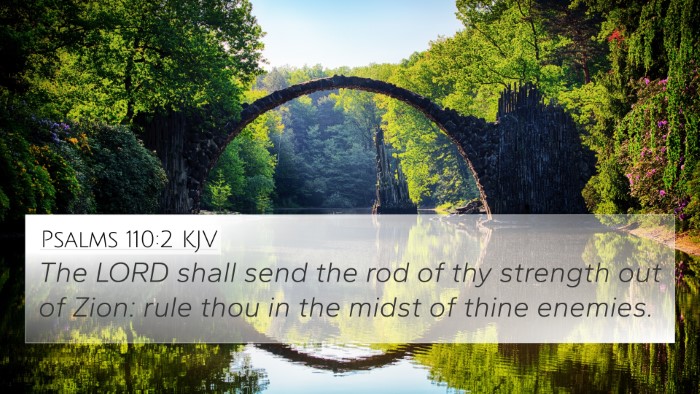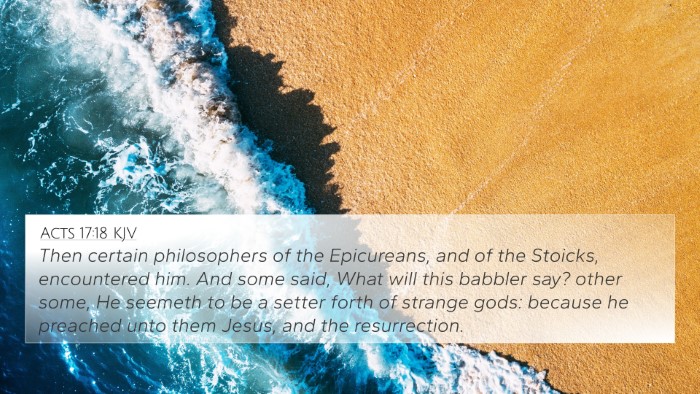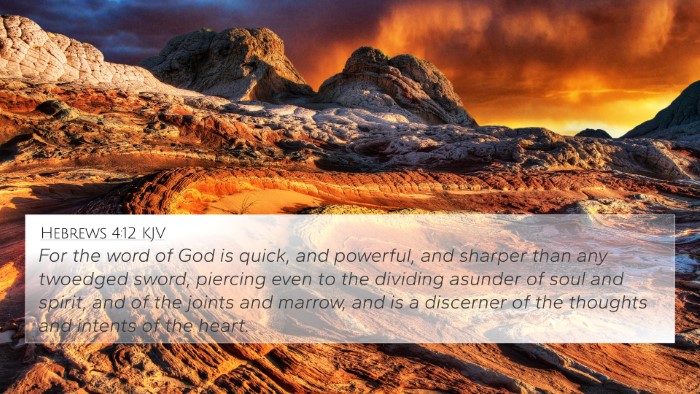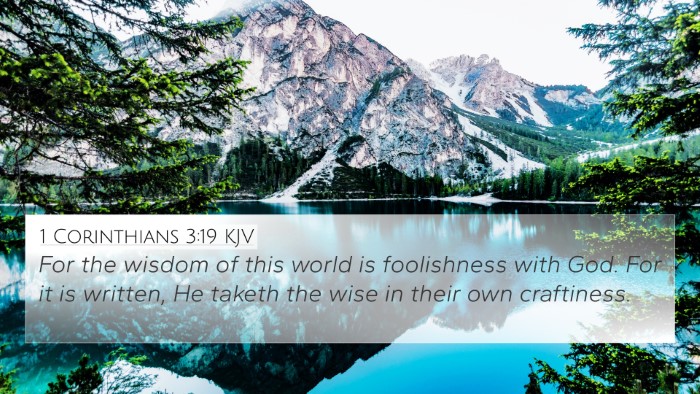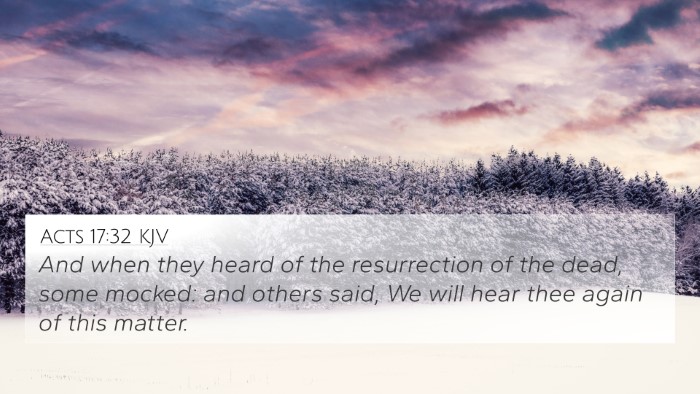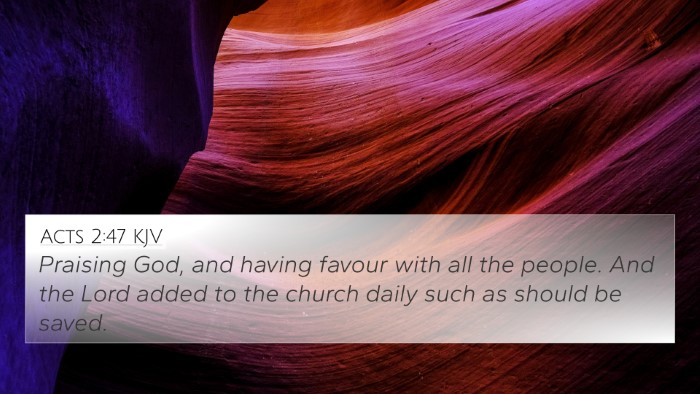Understanding 1 Corinthians 1:18
1 Corinthians 1:18 states, "For the word of the cross is folly to those who are perishing, but to us who are being saved it is the power of God." This verse captures the contrasting responses to the message of the cross, illustrating the divide between belief and skepticism. Through a comparative analysis of related scripture, we uncover the depth of this profound statement.
Key Themes in 1 Corinthians 1:18
- The Power of the Cross: The cross symbolizes the ultimate sacrifice of Christ and serves as the instrument of salvation for believers.
- Contrast of Wisdom: The "folly" mentioned highlights how the message of the cross is often seen as foolishness by those who do not embrace faith.
- Salvation and Perishing: The verse encapsulates the dichotomy of spiritual states—those on the path to salvation versus those on the path to destruction.
Cross-References for Further Study
To deepen the understanding of the themes in 1 Corinthians 1:18, consider exploring the following related Bible verses:
- Romans 1:16: "For I am not ashamed of the gospel, for it is the power of God for salvation to everyone who believes."
- Galatians 6:14: "But far be it from me to boast except in the cross of our Lord Jesus Christ."
- John 3:16: "For God so loved the world, that he gave his only Son, that whoever believes in him should not perish but have eternal life."
- Colossians 1:18: "And he is the head of the body, the church. He is the beginning, the firstborn from the dead, that in everything he might be preeminent."
- Philippians 3:18-19: "For many, of whom I have often told you and now tell you even with tears, walk as enemies of the cross of Christ."
- 2 Corinthians 2:15: "For we are the aroma of Christ to God among those who are being saved and among those who are perishing."
- 1 Peter 2:7-8: "So the honor is for you who believe, but for those who do not believe, the stone that the builders rejected has become the cornerstone."
Insights from Public Domain Commentaries
Matthew Henry's Commentary: Henry emphasizes that the "word of the cross" signifies the gospel, which to the unsaved appears as foolishness. However, to believers, it embodies divine wisdom and power, signifying the core of Christian faith.
Albert Barnes' Commentary: Barnes highlights the importance of the contrast between belief and doubt. He notes that those who are "perishing" lack the eyes to see the truth manifested through humility and suffering of Christ. This reveals how God’s wisdom often contradicts human understanding.
Adam Clarke's Commentary: Clarke elaborates on the significance of the "cross" in this verse, where he sees it as an emblem of suffering that leads to redemption. He stresses that recognizing the value of Christ's sacrifice transforms one's understanding of power and wisdom in spiritual terms.
Thematic Connections
The verse stands in dialogue with numerous themes present throughout scripture. By applying tools for cross-referencing Biblical texts, we can identify similar ideas surrounding the folly of the cross versus the wisdom of God.
Exploring verses that deal with themes of power, salvation, and the response of the world allows for a comprehensive understanding of how 1 Corinthians 1:18 interacts with other parts of the Bible.
Application for Study
For an effective cross-reference Bible study, utilize a Bible concordance or a cross-reference guide to pinpoint connections between significant concepts mentioned in this verse and broader biblical narratives. This method aids in identifying themes such as:
- How to use Bible cross-references to deepen faith.
- Identifying connections between the Old and New Testament's themes of sacrifice and salvation.
- Practical applications of the themes presented in 1 Corinthians 1:18 for modern believers.
Conclusion
1 Corinthians 1:18 serves as a pivotal verse in understanding the foundational beliefs of the Christian faith. By examining its meanings, cross-references, and insights from prominent commentaries, believers can better grasp the transformative message of the cross and how it applies to their lives.
